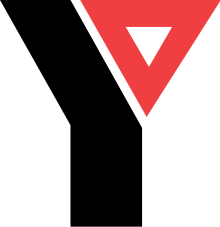YMCA SCUBA Program (also known as Y-SCUBA) was an underwater diving training program operated by YMCA of the USA from 1959 to 2008. It was the first nationally organised underwater diving instruction program offered in the United States of America. A program with a similar content is now delivered by Scuba Educators International, an organisation founded by a group of former senior YMCA SCUBA instructors in 2008.
 | |
| Successor | Scuba Educators International |
|---|---|
| Formation | August 1959 |
| Dissolved | December 31, 2008 |
| Type | Program offered by NGO |
| Legal status | 501(c)(3) association |
| Purpose | Underwater Diver training |
| Headquarters | YMCA of the USA National Head Office |
| Location | |
Region served | United States of America and other countries |
Parent organization | YMCA of the USA |
| Affiliations | CMAS 1980 - 2008 United States RSTC 1986- 2008 |
| Staff | 4 (2001) |
| Website | http://www.ymca.net/scuba |
Origins
editIn 1954, YMCA of the US and other interested parties under the auspices of the Council for National Cooperation in Aquatics commenced a study to look at the safety aspects of underwater diving. Findings of the study were outlined with the view of creating a course of training sufficient to produce ‘capable performance in those who elect to participate in… recreational (diving) activity’. A trial course was run during the late 1954 and early 1955 by YMCA of the USA using this outline. The material used in the course was then published in The Science of Skin and SCUBA Diving (or The New Science of Skin and SCUBA Diving as some sources suggest) during 1957. YMCA of the USA then developed its own program of underwater diving instruction for delivery as part of its existing aquatics program. It certified its first snorkelling and scuba diving instructors in August 1959, thereby becoming the first nationally organized underwater diving training program offered in the US.[1][2][3][4]
Winding up
editIn July 2008, YMCA of the USA announced that the scuba program would cease on December 31, 2008 and that it would continue to replace lost certificate cards for training conducted from 1984 to 2008. In 2008, a group of former YMCA SCUBA instructors created a new organisation called Scuba Educators International (SEI) for the purpose of continuing YMCA SCUBA diver training program under a new banner.[5][6]
Recognition
editIn 1980, YMCA SCUBA joined CMAS, thereby gaining access to CMAS International Diver Training Certificates for its divers and instructors.[7] YMCA SCUBA was a member of the Recreational Scuba Training Council (RSTC) from its foundation in 1986 until 2008.[8][9]
Qualifications
editAt the time of closure, YMCA SCUBA's qualification system was structured as follows.[10][11]
Snorkeledit
Scubaedit
|
Leadershipedit
|
Specialitiesedit
|
Specialities continuededit
|
CMAS equivalencies
editThe following equivalencies were those in place as of December 2004.[12]
| CMAS | Y Scuba |
|---|---|
| CMAS 1 Star Diver | YMCA Open Water Diver or Advanced Open Water Diver |
| CMAS 2 Star Diver | YMCA Silver Advanced Diver |
| CMAS 3 Star Diver | YMCA Divemaster |
| CMAS 4 Star Diver | YMCA Divemaster and Gold Master diver with 100 logged dives |
| CMAS 1 Star Instructor | YMCA Assistant Instructor |
| CMAS 2 Star Instructor | YMCA Silver/Gold/Platinum Instructor |
| CMAS 3 Star Instructor | YMCA Instructor Trainer |
References
edit- ^ "YMCA SCUBA Celebrates 40th Anniversary". YMCA. January 15, 2001. Archived from the original on January 15, 2001. Retrieved December 18, 2016.
- ^ Richardson, D (1999). "A brief history of recreational diving in the United States" (PDF). South Pacific Underwater Medicine Society Journal. 29 (3): 175. ISSN 0813-1988. OCLC 16986801. Archived from the original on September 26, 2012. Retrieved December 12, 2012.
{{cite journal}}: CS1 maint: unfit URL (link) - ^ Brylske, A. "A Brief History of Diving, part 2: Evolution of the Self-Contained Diver". Diver Training Magazine. Archived from the original on August 8, 2014. Retrieved December 19, 2016.
- ^ Tillman, Albert A.; Tillman, Thomas T. The History of NAUI: The National Association of Underwater Instructors (PDF). p. 8.
- ^ "YMCA Scuba". YMCA. April 27, 2008. Archived from the original on February 25, 2010. Retrieved December 6, 2012.
- ^ Jim Lapenta (November 29, 2008). "News Release". ScubaBoard. Retrieved January 6, 2013.
- ^ "C.M.A.S. Certification". YMCA. July 1, 1998. Archived from the original on July 1, 1998. Retrieved January 6, 2013.
- ^ Alex Brylske. "Training Standards: Understanding the "Why" Behind What Divers are Taught". Dive Training magazine. Archived from the original on December 27, 2013. Retrieved December 19, 2016.
- ^ "YMCA SCUBA Celebrates 40th Anniversary". YMCA. Archived from the original on January 15, 2001. Retrieved December 18, 2016.
- ^ YMCA (August 21, 2008). "Learn To Dive/ Certifications". YMCA. Archived from the original on August 21, 2008. Retrieved January 6, 2013.
- ^ YMCA (July 5, 2008). "Become an Instructor". YMCA. Archived from the original on July 5, 2008. Retrieved January 6, 2013.
- ^ Richard Leherpeur and Huu-Nghia "Kiki" Vuong (December 2, 2004). "Confederation Mondiale des Activites Subaquatiques (CMAS)" (PDF). frogdivers. Archived from the original (PDF) on October 14, 2004. Retrieved January 6, 2013.
External links
edit- http://www.ymca.net/scuba (website as of late 2008)